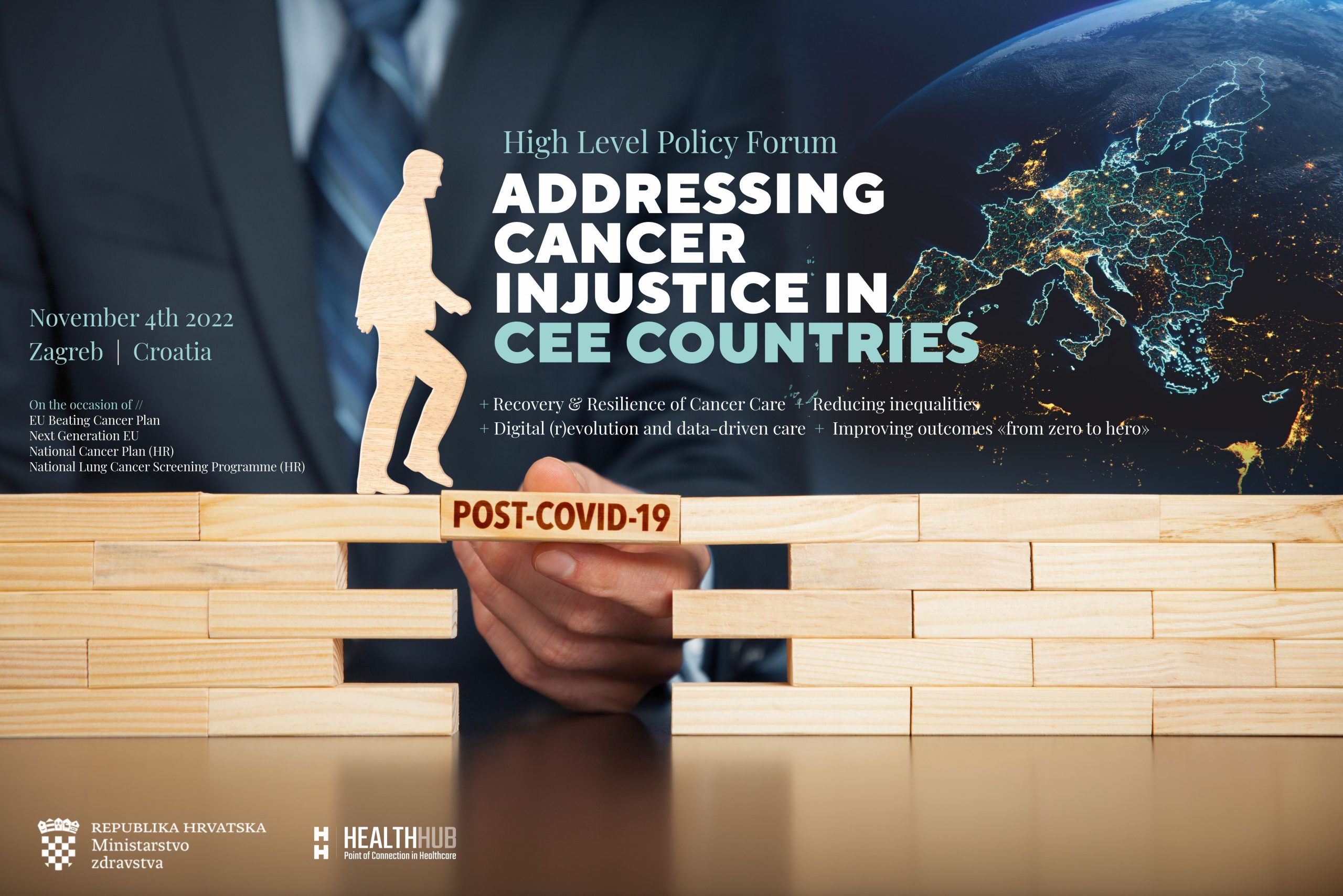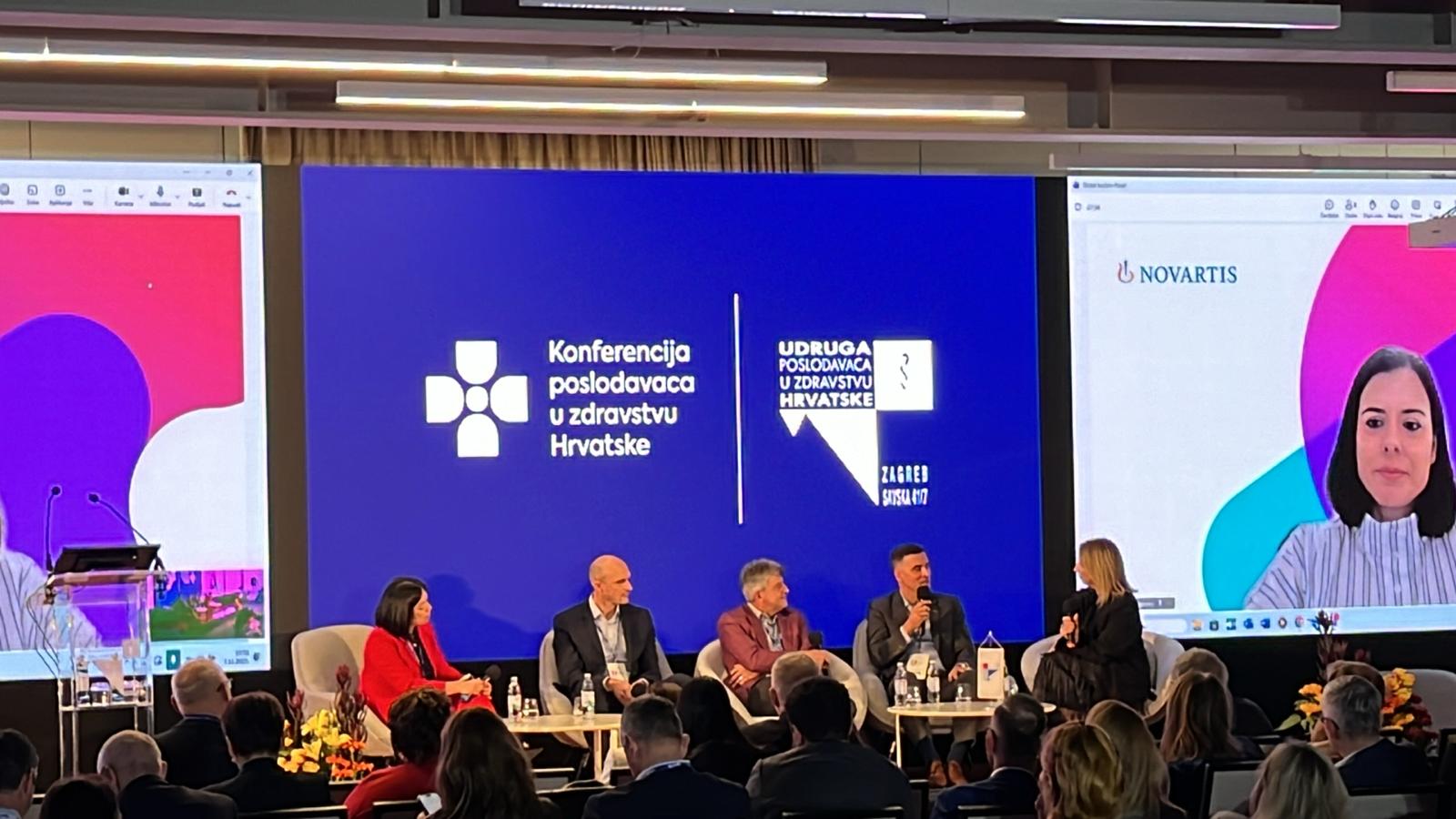HH Special Policy Report “Addressing Cancer Injustice in CEE Countries” – Reducing cancer disparities and inequalities in Europe
s EU Beating Cancer Plan highlights, number of indicators show major differences in cancer prevention and care between and within Member States. These inequalities can be seen in access to prevention programmes, in rates of early cancer detection, diagnosis, treatment, survival and measures to improve quality of life of cancer patients and survivors.
For instance, mortality rates from colorectal cancer are substantially higher among men than among women. Differences in survivorship and access to care can be explained by gender differences, a combination of lower exposure to risk factors, better access to screening programmes and health services, and better capacity to absorb the social and financial consequences of cancer. Furthermore, persistent discrepancies can also be observed for women, older people, persons with disabilities, and disadvantaged and marginalised groups, like people with a minority racial or ethnic background and people living in poverty.
These inequalities are unacceptable in a European Health Union that seeks to protect everyone. There should be no first- and second-class cancer patients in the EU. Europe’s Beating Cancer Plan aims to address these inequalities across the entire disease pathway. It will tackle these issues also in conjunction with the actions under the Pharmaceutical Strategy for Europe and the forthcoming EU Disability Rights Strategy. Several actions outlined in the Cancer Plan will address inequalities between and within EU Member States. [i] We will mention those actions in Health Hub’s Special Policy Report „ADDRESSING CANCER INJUSTICE IN CEE COUNTRIES“ later.

Europe is characterised by unacceptable disparities in access to cancer care and by significant social inequalities between and within European countries, which deeply impact cancer incidence, survival and mortality. Wide social inequalities in cancer incidence and survival exist both between and within European countries. All European Union Member States are affected by inequalities in cancer care between various population groups. Survival is often much lower in Southern and Eastern European countries than the European average. Important geographic differences in survival also exist within Western and Northern European countries, indicating that access to quality cancer care is not uniform across all European regions and that more privileged groups have better outcomes, due to a combination of lower exposure to risk factors, better access to screening programmes, better access to health services, and better capacity to absorb the social and financial consequences of cancer. Disadvantaged groups in all EU countries are at higher risk for most of the common cancers.
Social inequalities in cancer outcomes also have significant financial consequences for individuals and their families, and major economic consequences for Member States and the European Union. These costs account for 15% of social welfare system costs and 20% of the overall cost of health systems in the EU. Social inequalities in cancer are thus not only unethical, but also have significant consequences for the financial sustainability of healthcare budgets in all EU Member States. Since social inequalities in cancer have common roots, both across the continent of Europe and between social groups within the European population, they should be addressed at the European level. The European Union can play a crucial role in addressing inequalities in cancer care, by planning joint actions in all EU countries and by implementing effective measures to minimise inequalities in cancer incidence and survival.

Health Hub would like to highlight policy paper[ii] created as one of the deliverables of the Joint Action on Cancer Control (CanCon), an initiative of the European Commission with partners from 17 European countries. It provides practical recommendations on which the European Commission and Member States can base concrete actions designed to reduce social inequalities in cancer. These recommendations reflect the analysis of contributing experts regarding the challenges facing EU Member States. They reflect the shared learning that can be achieved from the approaches that individual Member States have already taken to address some of these challenges. The recommendations are also informed by a survey completed by Member States. The policy paper includes 13 general recommendations, grouped into 3 main focus areas: capacity-building; primary and secondary prevention; and cancer treatment, survivorship and rehabilitation.

Recent European Health Forum Gastein session “European Cancer Plan – a step towards a health union? – Tackling the socioeconomic impact of cancer through joint EU action” covered very important topics we will share with you in upcoming articles.
Recent scientific and technological breakthroughs in cancer care mean that patients now have the potential to live longer and better lives; however, demographics and the socioeconomic impact of cancer continues to affect individuals, families, and societies. Panellists spanning academia, advocacy, and policy will explore whether Europe’s Beating Cancer Plan is a case example for the Health Union to respond to the societal demands of the rising challenge of cancer.
Oncology experts from Australia, Romania, and Switzerland during this session provided insights from their research, including evidence-based and forward-looking policy recommendations that address the broader financial impact of cancer care whilst delivering better health outcomes for cancer patients. Discussion centred around the ways in which effective policy can overcome the shared barriers to care, tackle health inequities, and minimise the socioeconomic costs of cancer in Europe and beyond. [iii]
REFERENCES:
[i] https://health.ec.europa.eu/system/files/2022-02/eu_cancer-plan_en_0.pdf
[ii] Policy Paper on Tackling Social Inequalities in Cancer Prevention and Control for the European Population https://cancercontrol.eu/archived/uploads/PolicyPapers27032017/Policy_Paper_4_Tackling.pdf
[iii] https://www.ehfg.org/conference/programme/sessions/european-cancer-plan-a-step-towards-a-health-union





